|
Books Should Be Free Loyal Books Free Public Domain Audiobooks & eBook Downloads |
|
|
Books Should Be Free Loyal Books Free Public Domain Audiobooks & eBook Downloads |
|
Top Authors |
|---|
|
Book type:
Sort by:
|
By: Frank Stockton (1834-1902) | |
|---|---|
 Rudder Grange
Rudder Grange
This book presents a number of short, comedic sketches of a country life in middle America in the late 1800s. The hilarious twists and turns endear our adorable, naive married couple to the reader; and the orphan servant Pomona – dear, odd, funny Pomona! – is the focus of several of the stories. Imagine a honeymoon in a lunatic asylum, and you’ve got Rudder Grange! | |
 Pomona's Travels
Pomona's Travels
Pomona and Jone of Rudder Grange fame travel to England and Scotland. Along the way, Pomona tangles with wild pigs, haymaking, hotels great and small, Pullman cars, comparison-makers, and a Duchess. She makes two matches and – in her usual, unorthodox way – stag hunts and attends a knighting. Pomona is as hilarious as ever, if a bit more rounded off on the edges. | |
By: Joseph Sheridan LeFanu (1814-1873) | |
|---|---|
 Carmilla
Carmilla
Published in 1872, Carmilla is an early work in the vampire literature genre and is incidentally one of the most influential of its type. The gothic novella accounts the tale of Laura, a young woman who becomes susceptible to the friendship and seductive charms of the mysterious Carmilla. A gripping tale of coincidence, mystery, compulsion, dark romance, and deception, Le Fanu’s classic is regarded as having paved the way for modern takes on vampires. Narrated by Laura, the novel opens with a recount of her childhood, as she depicts growing up in a beautiful, yet solitary castle encompassed by a forest in Styria, Austria... | |
By: Clarence Edwords (b. 1856) | |
|---|---|
 Bohemian San Francisco
Bohemian San Francisco
While describing his dining experiences throughout “Bohemian San Francisco,” Clarence Edwords paints an historic panorama of California cuisine with all its cosmopolitan influences. Best of all, he offers tantalizing recipes culled from conversations with the master chefs of 1914 in “The City by the Bay.” | |
By: C. S. Lewis (1898-1963) | |
|---|---|
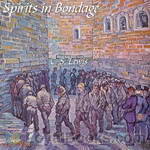 Spirits in Bondage: a cycle of lyrics
Spirits in Bondage: a cycle of lyrics
First published in 1919 under his pseudonym Clive Hamilton, Spirits in Bondage, is also the first published book by the notorious novelist C.S. Lewis. This early piece of work represents Lewis’ youth, as it was written at a time when the author had just returned from his military service in the First World War. In addition it differentiates itself from his other works, not just in terms of style, but also in themes due to his agnostic stand at the time. Written in the form of poetry, the piece is divided into three sections of poetry, each intended to be read in chronological order to gain complete access to its themes and ideas... | |
By: Booth Tarkington | |
|---|---|
 Alice Adams
Alice Adams
A Pulitzer Prize-winning novel, Alice Adams chronicles the attempts of a lower middle class American midwestern family at the turn of the 20th century to climb the social ladder. The eponymous heroine is at the heart of the story, a young woman who wants a better place in society and a better life. As Gerard Previn Meyer has stated, “Apart from being the contribution to social history its author conceived it to be, [Alice Adams] is something more, that something being what has attracted to it so large a public: its portrait of a (despite her faults) ‘lovable girl’.” | |
 Seventeen
Seventeen
A Tale of Youth and Summer Time and the Baxter Family Especially William | |
 Gentle Julia
Gentle Julia
Penrod for girls in the form of Florence, the bratty younger cousin of luminous Julia Atwater, enlivens this romantic comedy set in Tarkington's Indiana of the early 20th Century. | |
 Penrod
Penrod
Join Penrod Schofield and his wistful dog Duke, in a hilarious romp through turn of the century Indianapolis, chronicling his life, loves, and mostly the trouble he gets into. | |
 The Magnificent Ambersons
The Magnificent Ambersons
The Magnificent Ambersons is a 1918 novel by Booth Tarkington which won the 1919 Pulitzer Prize. It was the second novel in the Growth trilogy, which included The Turmoil (1915) and The Midlander (1923, retitled National Avenue in 1927). In 1942 Orson Welles directed a film version, also titled The Magnificent Ambersons. | |
 Penrod and Sam
Penrod and Sam
Follow more of the hilarious life of the boy Penrod Schofield, his friends Sam Williams, Herman, Verman, Georgie, Maurice, and the love of his life, Marjorie Jones. | |
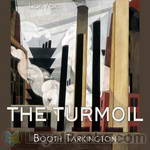 The Turmoil
The Turmoil
The Turmoil is the first novel in the ‘Growth’ trilogy, which also includes The Magnificent Ambersons (1918) and The Midlander (1923, retitled National Avenue in 1927). In 1942 Orson Welles directed a film version based on volume 2, also titled “The Magnificent Ambersons.” The trilogy traces the growth of the United States through the declining fortunes of three generations of the aristocratic Amberson family in a fictional Mid-Western town, between the end of the Civil War and the early part of the 20th century, a period of rapid industrialization and socio-economic change in America... | |
 The Gentleman from Indiana
The Gentleman from Indiana
| |
 The Man from Home
The Man from Home
| |
 Harlequin and Columbine
Harlequin and Columbine
| |
 The Two Vanrevels
The Two Vanrevels
| |
 His Own People
His Own People
| |
 In the Arena Stories of Political Life
In the Arena Stories of Political Life
| |
 The Gibson Upright
The Gibson Upright
| |
 Ramsey Milholland
Ramsey Milholland
| |
By: Gideon Wurdz (b. 1875) | |
|---|---|
 The Foolish Dictionary
The Foolish Dictionary
“The Foolish Dictionary” was written by “Gideon Wurdz” and was published in 1904. According to the beginning of the book, it is “An exhausting work of reference to un-certain English words, their origin, meaning, legitimate and illegitimate use…” This a a short but amusing dictionary which “redefines” words in some interesting ways. Funny and sometimes bizarre observations are sprinkled throughout. In keeping with the policy to read, rather than attempt to rewrite, books – even those with offensive content – nothing has been omitted... | |
By: William Shuler Harris (b. 1865) | |
|---|---|
 Life in a Thousand Worlds
Life in a Thousand Worlds
A jolly romp, which could be perhaps be described as Gulliver’s Travels Through Our Solar System and Beyond, as written by a great admirer of C. S. Lewis, on a rainy Sunday afternoon, after one too many mugs of cocoa. Includes some thought on alien philosophies and how to apply them to moral and social problems here on Planet Earth. | |
By: Heinrich Hoffmann (1809-1894) | |
|---|---|
 Struwwelpeter: Merry Tales and Funny Pictures
Struwwelpeter: Merry Tales and Funny Pictures
Struwwelpeter (Slovenly Peter) is an illustrated collection of humorous children’s poems describing ludicrous and usually violent punishments for naughty behavior. Hoffmann, a Frankfurt physician, wanted to buy a picture book for his son for Christmas in 1844. Not impressed by what the stores had to offer, he instead bought a notebook and wrote his own stories and pictures. While Struwwelpeter is somewhat notorious for its perceived brutal treatment of the erring children, it has been influential on many later children’s books, most notably Charlie and the Chocolate Factory. | |
 Slovenly Betsy
Slovenly Betsy
Hienrich Hoffmann was a German psychiatrist and doctor. He had written poetry and sketches for his son, and was persuaded to have a collection of these printed.The stories were not perceived as cruel or overly moral by Hoffmann's contemporaries.This American version contains a few of the stories from the original German "Struwwelpeter" publication. | |
By: Theodore Roosevelt | |
|---|---|
 Theodore Roosevelt: An Autobiography
Theodore Roosevelt: An Autobiography
In his vital, illustrative and dynamic autobiography, Theodore Roosevelt let us into the life that formed one of the greatest and outspoken presidents in American history. Not only are we privy to the formation of his political ideals, but also to his love of the frontier and the great outdoors. | |
 Through the Brazilian Wilderness
Through the Brazilian Wilderness
Roosevelt’s popular book Through the Brazilian Wilderness describes his expedition into the Brazilian jungle in 1913 as a member of the Roosevelt-Rondon Scientific Expedition co-named after its leader, Brazilian explorer Cândido Rondon. The book describes all of the scientific discovery, scenic tropical vistas and exotic flora, fauna and wild life experienced on the expedition. One goal of the expedition was to find the headwaters of the Rio da Duvida, the River of Doubt, and trace it north to the Madeira and thence to the Amazon River... | |
 The Rough Riders
The Rough Riders
| |
 Letters to His Children
Letters to His Children
The strong, vigorous, exalted character of a doting father who loved playing with his children and their pets, even while serving as the President of the United States, stands revealed in this selection of letters he wrote his children throughout their school years. They shed light on the cheerful man who remained throughout his life as pure and gentle as the soul of a child, plus many little reveals that there were squirrels nesting in the presidential bedroom, rats in the basement, and children's... | |
 Hunting the Grisly and Other Sketches
Hunting the Grisly and Other Sketches
| |
 The Winning of the West, Volume 1 From the Alleghanies to the Mississippi, 1769-1776
The Winning of the West, Volume 1 From the Alleghanies to the Mississippi, 1769-1776
| |
 African and European Addresses
African and European Addresses
| |
 A Book-Lover's Holidays in the Open
A Book-Lover's Holidays in the Open
| |
 Average Americans
Average Americans
| |
 State of the Union Address
State of the Union Address
| |
By: Frederick Hoffman | |
|---|---|
 A Sailor of King George
A Sailor of King George
| |
By: Francois Guizot (1787-1874) | |
|---|---|
 Popular History of France from the Earliest Times
Popular History of France from the Earliest Times
François Pierre Guillaume Guizot (1787-1874) was a French historian, orator, and statesman. Guizot was a dominant figure in French politics prior to the Revolution of 1848, actively opposing as a liberal the reactionary King Charles X before his overthrow in the July Revolution of 1830, then in government service to the “citizen king” Louis Philippe, as the Minister of Education, 1832-1837, ambassador to London, Foreign Minister 1840-1847, and finally Prime Minister of France from September 19, 1847 to February 23, 1848. His “Popular History of France” is an attractive and engrossing narravative, here presented in an easily readable English translation. | |
By: Alphonse Daudet (1840-1897) | |
|---|---|
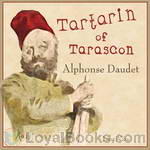 Tartarin of Tarascon
Tartarin of Tarascon
It tells the burlesque adventures of Tartarin, a local hero of Tarascon, a small town in southern France, whose invented adventures and reputation as a swashbuckler finally force him to travel to a very prosaic Algiers in search of lions. Instead of finding a romantic, mysterious Oriental fantasy land, he finds a sordid world suspended between Europe and the Middle East. And worst of all, there are no lions left. | |
 The Immortal Or, One Of The "Forty." (L'immortel) - 1877
The Immortal Or, One Of The "Forty." (L'immortel) - 1877
| |
 Artists' Wives
Artists' Wives
| |
 The Nabob
The Nabob
| |
 Tartarin De Tarascon
Tartarin De Tarascon
| |
 Jack 1877
Jack 1877
| |
 Le Petit Chose (part 1) Histoire d'un Enfant
Le Petit Chose (part 1) Histoire d'un Enfant
| |
 Tartarin On The Alps
Tartarin On The Alps
| |
 The Nabob, Volume 1
The Nabob, Volume 1
| |
 Fromont and Risler
Fromont and Risler
| |
 The Nabob, Vol. 2 (of 2)
The Nabob, Vol. 2 (of 2)
| |
By: George Bernard Shaw (1856-1950) | |
|---|---|
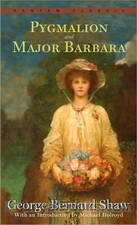 Pygmalion
Pygmalion
If you've watched and loved the delightful musical My Fair Lady, then you'd love to read the wonderful play on which it is based. Pygmalion by George Bernard Shaw is equally engrossing and as full of charm, wit and underlying pathos. First performed on stage in 1912, Pygmalion takes its title from the Greek myth of Pygmalion and Galatea. In the ancient story, a brilliant sculptor, Pygmalion falls in love with one of his own creations, a ravishingly beautiful sculpture whom he names Galatea. He propitiates Aphrodite, who grants his wish that his statue would come to life and that he could marry her... | |
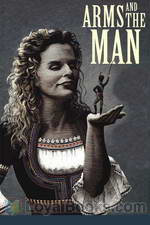 Arms and the Man
Arms and the Man
Arms and the Man is a comedy by George Bernard Shaw that takes place in 1885, during the Serbo-Bulgarian War. Raina Petkoff is engaged to the gallant Sergius Saranoff, hero of the recent Bulgarian victory over the Serbs. But she is distracted by the abrupt arrival of Captain Bluntschli, a Swiss mercenary who fought for the Serbian army. He takes refuge in her bedroom after the battle and although he is initially threatening, reveals that he carries chocolates instead of bullets. Will Raina marry the posturing Sergius or the chocolate cream soldier? Extra intrigue is provided by saucy servant girl Louka, her dour fiance Nicola, and Raina's hand-wringing parents. | |
 The Admirable Bashville
The Admirable Bashville
The Admirable Bashville is a product of the British law of copyright. As that law stands at present, the first person who patches up a stage version of a novel, however worthless and absurd that version may be, and has it read by himself and a few confederates to another confederate who has paid for admission in a hall licensed for theatrical performances, secures the stage rights of that novel, even as against the author himself; and the author must buy him out before he can touch his own work for the purposes of the stage... | |
 Mrs. Warren's Profession
Mrs. Warren's Profession
The story centers on the relationship between Mrs Kitty Warren, a rich woman, described by the author as "on the whole, a genial and fairly presentable old blackguard of a woman" and her daughter, Vivie. Mrs Warren is a middle-aged woman whose Cambridge-educated daughter, Vivie, is horrified to discover the morally questionable way her mother acquired her fortune. | |
 The Doctor's Dilemma
The Doctor's Dilemma
The Doctor's Dilemma is about Dr. Colenso Ridgeon, who has recently been knighted because of a miraculous new treatment he developed for tuberculosis. As his friends arrive to congratulate him on his success, he is visited by two figures who present him with a difficult decision. He has room for one more patient in his clinic; should he give it to Louis Dubedat, a brilliant but absolutely immoral artist, or Dr. Blenkinsop, a poor and rather ordinary physician who is a truly good person? Dr. Ridgeon's dilemma is heightened when he falls for Jennifer Dubedat, the artist's wife, who is innocent of her husband's profligacy. | |
By: Katherine Mansfield (1888-1923) | |
|---|---|
 The Garden Party
The Garden Party
A collection of short stories on a variety of subjects, by one of New Zealand’s best-known writers. | |
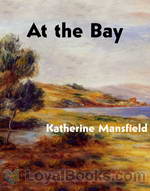 At The Bay
At The Bay
Katherine Mansfield was a prominent Modernist writer of short fiction, and one of New Zealand’s best-known authors. “At the Bay” is a story from her collection The Garden Party. | |
 Prelude
Prelude
One of the first books to be published by Leonard & Virginia Woolf's Hogarth Press, Prelude is among Katherine Mansfield's most accomplished stories, inspired by her childhood in New Zealand. (Introduction by iremonger) | |
By: Helen Hunt Jackson (1830-1885) | |
|---|---|
 A Calendar of Sonnets
A Calendar of Sonnets
Helen Hunt Jackson is probably most famous for her work on behalf of Native Americans’ rights. However, this short volume presents a sonnet for each month of the year, devoted simply and beautifully to the shifting wonder of nature through the seasons. | |
 Ramona
Ramona
Set in Old California in the wake of the Mexican-American War, Ramona is two stories at once. It is the story of the love between a part-Native American orphan girl, Ramona, and Alessandro, a young Indian sheepherder. It is also the story of racial prejudice and the clash between cultures as California changes from a Spanish colony to an American territory. Ramona is the ward of Señora Gonzaga Moreno, who despises the girl for her race but honors the dying wish of the Señora's sister, Ramona's foster-mother, to raise her as her own... | |
 Letters from a Cat
Letters from a Cat
Letters from a Cat: published by her mistress for the benefit of all cats and the amusement of little children is a collection of letters that a little girl receives from her pet while she is away from home. They tell of her pet’s adventures and misadventures. The book includes a preface which gives a little biography of the cat including its sad demise. H.H. was the alias of Helen Maria Hunt Jackson (1830 –1885) who is better known for her novel Ramona in which she dramatized the mistreatment of Native Americans and which formed part of her campaign for improved treatment of Native Americans by the U.S. Government. | |
 Bits About Home Matters
Bits About Home Matters
This book is a collection of short observations by Helen Hunt Jackson, several with children and parenting as the subject matter. | |
 Between Whiles
Between Whiles
| |
 Mammy Tittleback and Her Family A True Story of Seventeen Cats
Mammy Tittleback and Her Family A True Story of Seventeen Cats
| |
 Saxe Holm's Stories
Saxe Holm's Stories
| |
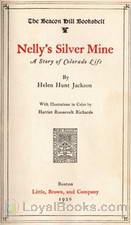 Nelly's Silver Mine A Story of Colorado Life
Nelly's Silver Mine A Story of Colorado Life
| |
 The Hunter Cats of Connorloa
The Hunter Cats of Connorloa
| |
 Mercy Philbrick's Choice
Mercy Philbrick's Choice
| |
 Hetty's Strange History
Hetty's Strange History
| |
 Hetty's Strange History
Hetty's Strange History
| |
By: Isabella Alden (1841-1930) | |
|---|---|
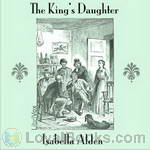 The King's Daughter
The King's Daughter
Dell Bronson has been reared in Boston by her refined uncle and aunt until, at age 18, she is called home by her father, a coarse tavern owner in Lewiston. As a daughter of the heavenly King, she strives to honor her heavenly Father by wooing her earthly father to Christ and away from rum. Set in the era of the temperance movement of the 1800’s. Authored by Isabella M. Alden under the pen name “Pansy.” Third in the Ester Ried series. | |
 Ester Ried
Ester Ried
Authored by Isabella M. Alden under the pen name “Pansy.” Ester Ried’s life is a dull monotony of toiling at her family’s boardinghouse. She’s overworked, jealous and cranky, a poor example of a Christian to her family and associates. She awakens to a new attitude and commitment due to an extended visit with her cousin. | |
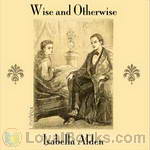 Wise and Otherwise
Wise and Otherwise
Immature Mr. Tresevant (from “The King’s Daughter”) comes to Newton with his spoiled wife to be the new pastor of the church attended by Dr. and Mrs. Douglass, Mr. and Mrs. Sayles, and Mr. and Mrs. Tyndall (from “Ester Ried” and “Julia Ried”), boarding with Jerome and Abbie Sayles. Authored by Isabella M. Alden under the pen name “Pansy.” Fourth in the Ester Ried series. | |
 Julia Ried
Julia Ried
Authored by Isabella M. Alden under the pen name “Pansy.” Sequel to “Ester Ried.” Julia Ried must take a job as a bookkeeper in a factory to earn a living. The mistress of her boardinghouse influences her in a negative way, drawing her into a life and attitude displeasing to God. Will her family and friends be able to convince her stand up for what’s right? | |
 Four Girls at Chautauqua
Four Girls at Chautauqua
Authored by Isabella M. Alden under the pen name “Pansy.” First in the Chautauqua Girls series. Four friends – spoiled, quirky Ruth; fun-loving and mischievous Eurie; poor, independent and brainy Marion; and meek, approval-seeking Flossy – attend Chautauqua on a lark, and their lives are changed forever. (Chautauqua is an adult education movement in the United States, highly popular in the late 19th and early 20th centuries. The Chautauqua brought entertainment and culture for the whole community, with speakers, teachers, musicians, entertainers, preachers and specialists of the day.) | |
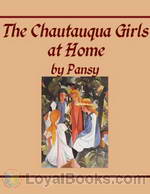 The Chautauqua Girls at Home
The Chautauqua Girls at Home
Sequel to Four Girls at Chautauqua. Ruth, Flossy, Eurie, and Ruth return home as new Christians, eager to begin working. Their new faith clashes with their old lives, which they must overcome, as well as the prejudices of friends and acquaintances. | |
 Ester Ried's Namesake
Ester Ried's Namesake
Ester Ried Randall tries to live up to her parents’ expectations and the name she’s been given, but her religion is a chore. Will she learn the lesson of faith that Ester did? Fifth and final book in the Ester Ried series. Authored by Isabella M. Alden under the pen name “Pansy.” | |
 Judge Burnham's Daughters
Judge Burnham's Daughters
Fifth in the Chautauqua Girls series. Ruth Erskine Burnham has helped raise her husband’s two daughters, but all have rejected her faith and values. The constant pressure to compromise has weakened her walk and made her life miserable. Her one comfort is her somewhat sickly 5 year old son. Will she return to the strong faith of her young womanhood, and will her family finally follow? | |
 Ruth Erskine's Crosses
Ruth Erskine's Crosses
Third book in the Chautauqua Girls series. Written by Isabella Alden under the pseudonym “Pansy.” Ruth’s father brings home a wife and daughter, after 18 years, that Ruth had never known about. Suddenly she is no longer the queen of her home. And what’s worse, the new mother and sister are rude and antagonistic. How will Ruth bear this cross? | |
By: Harriet Jacobs (1813-1897) | |
|---|---|
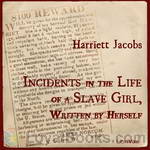 Incidents in the Life of a Slave Girl, Written by Herself
Incidents in the Life of a Slave Girl, Written by Herself
Born in slavery, but being fortunate enough to be owned by a benevolent mistress, her life takes a tragic turn when her parents and her benefactor die. The new heir to the property (and slaves) is a cruel and lewd man who begins to make inappropriate advances to the lovely young slave-girl. In a bid to escape, she becomes entangled in a relationship with a neighboring landowner who promises a better life, and she even has two children. However, things become worse for her when her cruel owner decides to punish her by sending her and her children to a distant cotton plantation to be “broken in... | |
By: W. Somerset Maugham (1874-1965) | |
|---|---|
 The Moon and Sixpence
The Moon and Sixpence
The Moon and Sixpence is a 1919 short novel by William Somerset Maugham based on the life of the painter Paul Gauguin. The story is told in episodic form by the first-person narrator as a series of glimpses into the mind and soul of the central character, Charles Strickland, a middle aged English stock broker who abandons his wife and children abruptly to pursue his desire to become an artist. | |
 On a Chinese Screen
On a Chinese Screen
This is a non-fiction collection of Maugham's observations of life in Asia in the early 20th Century. | |
By: Waldemar Bonsels (1880-1952) | |
|---|---|
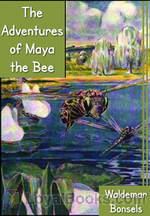 The Adventures of Maya the Bee
The Adventures of Maya the Bee
A little bee is born in a large and busy hive. At that time, the hive is going through a period of unrest and there are fears that it will become subdivided into separate colonies. The little new-born, Maya, is under the care of a strict but loving teacher. One day, driven by curiosity and rebellion, Maya escapes from the safe environs of the hive and flies into the forest. Here, she encounters all sorts of interesting, exciting, frightening and funny things. The Adventures of Maya the Bee is the story of the intriguing days that follow... | |
By: Mary Harris Jones (1830 or 1837-1930) | |
|---|---|
 The Autobiography of Mother Jones
The Autobiography of Mother Jones
Mother Jones (Mary Harris Jones) was a legendary labor organizer. She was a founding member of the International Workers of the World (the IWW, or the Wobblies), and was active in the United Mine Workers and the Socialist Party of America. | |
By: James Weldon Johnson (1871-1938) | |
|---|---|
 Word of an Engineer
Word of an Engineer
James Weldon Johnson was an American author, educator, lawyer, diplomat, songwriter, and civil rights activist. Johnson is best remembered for his leadership within the National Association for the Advancement of Colored People (NAACP), where he started working in 1917, being chosen as the first black executive secretary of the organization, effectively the operating officer. He was first known for his writing, which includes poems, novels, and anthologies collecting both poems and spirituals of black culture. | |
 Self-Determining Haiti Four articles reprinted from The Nation embodying a report of an investigation made for the National Association for the Advancement of Colored People.
Self-Determining Haiti Four articles reprinted from The Nation embodying a report of an investigation made for the National Association for the Advancement of Colored People.
| |
By: Irwin S. Cobb (1876-1944) | |
|---|---|
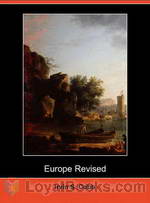 Europe Revised
Europe Revised
Irwin Cobb’s humorous Europe Revised is a travelogue and comedy almost in the style of Mark Twain. The dedication says it best, “To My Small DaughterWho bade me shed a tear at the tomb of Napoleon, which I was very glad to do, because when I got there my feet certainly were hurting me.” | |
By: Guy de Maupassant (1850-1893) | |
|---|---|
 Ball-of-Fat
Ball-of-Fat
The first significant published short story of French author Guy de Maupassant, and generally acknowledged as his greatest work, “Ball-of-Fat” (French title: Boule de Suif) is the touching story of an interrupted coach ride from Rouen to Le Havre during which occurs the corruption of a principled prostitute by immoral and hypocritical members of the upper class. The story is set during the occupation of Rouen at the time of the Franco-Prussian War. | |
 Bel Ami, or The History of a Scoundrel
Bel Ami, or The History of a Scoundrel
“He had faith in his good fortune, in that power of attraction which he felt within him - a power so irresistible that all women yielded to it.”Though firmly set in 1880s Paris, Maupassant's gripping story of an amoral journalist on the make could, with only slight modifications of detail, be updated to the 1960s, to the Reagan-Thatcher years, or maybe to the present day. Anti-hero Georges Duroy is a down-at-heel ex-soldier of no particular talent. Good-looking but somewhat lacking in self-confidence, he discovers an ability to control and exploit women - whereupon his career in journalism takes off, fuelled by the corruption of colleagues and government arrivistes... | |
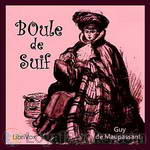 Boule de Suif
Boule de Suif
Boule de Suif (1880) is a short story by the late-19th century French writer Guy de Maupassant. It is arguably his most famous short story, and is the title story for his collection on the Franco-Prussian War, entitled "Boule de Suif et Autres Contes de la Guerre" ("Boule de Suif and Other Stories of the War"). John Ford said that his film Stagecoach was in many ways a western rewrite of Boule de Suif. | |
 Mademoiselle Fifi
Mademoiselle Fifi
| |
 Une Vie, a Piece of String and Other Stories
Une Vie, a Piece of String and Other Stories
| |
 The Works of Guy de Maupassant, Volume 1
The Works of Guy de Maupassant, Volume 1
| |
 Quotes and Images From The Short Stories of Maupassant
Quotes and Images From The Short Stories of Maupassant
| |
 Strong as Death
Strong as Death
| |
 Yvette
Yvette
| |
 Comedy of Marriage and Other Tales
Comedy of Marriage and Other Tales
| |
By: Gottfried Keller (1819-1890) | |
|---|---|
 Seven Legends
Seven Legends
| |
 Seldwyla Folks Three Singular Tales
Seldwyla Folks Three Singular Tales
| |
By: Joseph E. Badger, Jr (1848-1909) | |
|---|---|
 The Lost City
The Lost City
Bruno and Waldo Gillespie are orphaned brothers living with the extremely eccentric Professor Phaeton Featherwit. One day they set off in one of the professor’s machines to investigate a tornado at close range and accidentally get sucked into it! They are then transported by the tornado and find themselves in a barren, uncharted wasteland wherein lies a city– a long lost Aztec city! Find out what happens next to the brothers and the professor in this harrowing and exhilarating adventure! | |
By: William James (1842-1910) | |
|---|---|
 Essays in Radical Empiricism
Essays in Radical Empiricism
William James (1842 – 1910) was a pioneering American psychologist and philosopher. He wrote influential books on the young science of psychology, educational psychology, psychology of religious experience and mysticism, and the philosophies of pragmatism and Radical Empiricism. Essays in Radical Empiricism is a collection edited and published posthumously by his colleague and biographer Ralph Barton Perry in 1912. It was assembled from a collection of reprinted journal articles published from 1904–1905 which James had deposited in August 1906 at Harvard University, for supplemental use by his students. | |
 Varieties of Religious Experience
Varieties of Religious Experience
The Varieties of Religious Experience: A Study in Human Nature is a book by the Harvard psychologist and philosopher William James that comprises his edited Gifford Lectures on "Natural Theology" delivered at the University of Edinburgh in Scotland between 1901 and 1902. These lectures concerned the nature of religion and the neglect of science, in James' view, in the academic study of religion. Soon after its publication, the book found its way into the canon of psychology and philosophy, and has remained in print for over a century. | |
 The Moral Equivalent of War
The Moral Equivalent of War
The Moral Equivalent of War, the last public utterance of William James, is significant as expressing the opinions of a practical psychologist on a question of growing popular interest. For the past fifteen years the movement for promoting international peace has been enlisting the support of organizations and individuals the world over. That this is a question on which much may be said for the opposition, James, though a pacificist, admits with his usual fair-mindedness, pointing out that militarism... | |